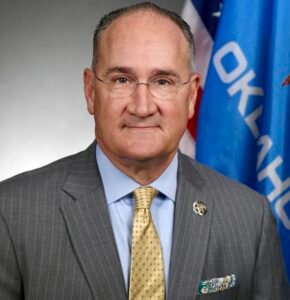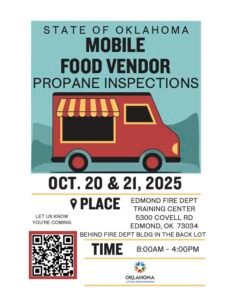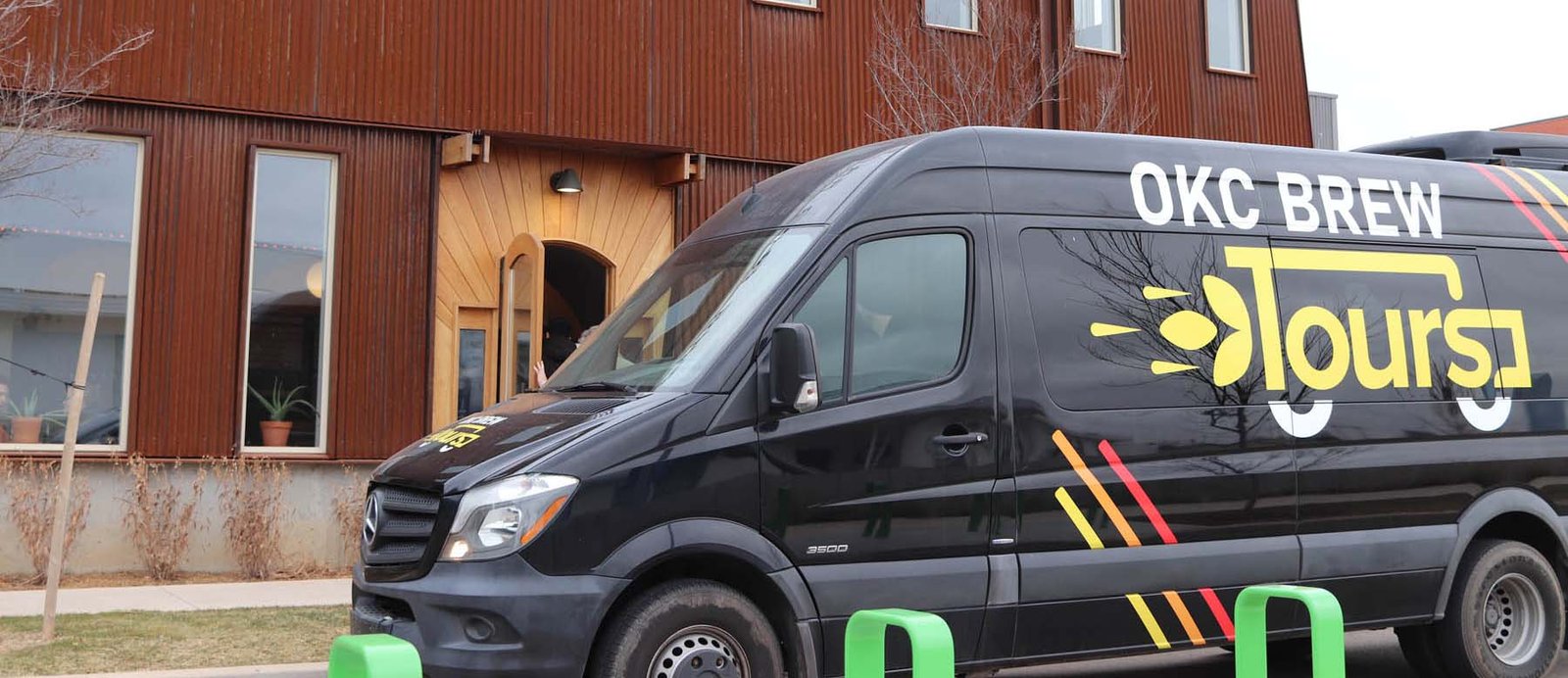Help for Oklahoma Food Trucks
A new law to simplify the fire-safety inspection for food trucks by assigning responsibility to the Oklahoma Fire Marshal’s office goes into effect November 1. HB 2459 by Rep. Scott Fetgatter (R – Dist. 16) contains several provisions related to fire safety for “mobile food preparation vehicles” but the key component eliminates fire-safety inspections at the municipal level, a move that will deprive small municipalities of some fee-based revenues, but is expected to save operators money by issuing an annual statewide license upon successful inspection.
Oklahoma Restaurant Association (ORA) President and CEO James Leewright said, “HB 2459 was designed to streamline the permitting process and protect operators from having to get permits in multiple counties and municipalities, which means they’ll save money and time on administration and fees.”

James Leewright
The new legislation will have the most impact on food truck operators who drive to other Oklahoma cities and towns for special events, festivals, private events, etc., because up until the passage of HB 2459, each municipality, county, or other political subdivision could assess a fire-safety inspection fee. This single license is essentially a permit to operate anywhere in Oklahoma, at least from a fire safety perspective, including trucks that use electric, liquid petroleum gas, and compressed natural gas fuel sources.
The new law does not prevent those same political subdivisions from assessing other fees. In fact, the language is specific: “Nothing in this act shall prevent a political subdivision from enforcing the political subdivision’s event permits, operational fees, land use regulations, zoning, and other ordinances in relation to the operation of a mobile food preparation vehicle within the boundaries of said political subdivision.”
Conceivably, municipalities could simply charge more for those other fees to compensate for the loss of revenue related to the new law, but we won’t know anything until the new law goes into effect.
The law is a complementary ordinance to the Food Truck Freedom Act (HB 1076) coauthored by Rep. Derrick Hildebrant (R – Dist. 23), and Sen. Christi Gillespie (R – Dist. 33), signed by Governor Stitt in May this year. That piece of legislation created a single state food establishment license that allowed food trucks to operate statewide.

Keith Bryant
Oklahoma State Fire Marshal Keith Bryant said, “This new legislation grants sole jurisdiction over fire-safety inspections for mobile food preparation vehicles to this office, and we’ll be working with operators before and after the legislation goes into effect to get them permitted. We’re not trying to go after anyone. We know this is the first year, and things are just getting rolling, so we’re hosting some inspection events in Oklahoma City, Tulsa, and McAlester, and we’ll add more.”
Bryant said the legislation requires the inspections be available in “all four quadrants of the state,” and said his office would be announcing upcoming inspection events for areas in the far northwest, like Guymon and Woodward, both of which have several food trucks in operation.
“After the events, this will work like any fire inspection we do,” Bryant said. “An operator can call our office, schedule an appointment, and we’ll send an inspector. We’re happy to answer their questions and help in any way we can.”
The next inspection event is October 20, 21, 8 a.m. to 4 p.m., at the Edmond Fire Department Training Center (5300 Covell Rd.). This event is focused on propane inspections. The responsibility for LGG permits falls to the Oklahoma LP Gas Administration, not the Fire Marshal’s office, but the permit is the same. Until the law goes into effect, the fee for inspections will be waived, so any operator getting inspected before November 1 will not be charged for the permit.

Getting the word out to operators is challenging for a couple reasons. First, there is no statewide food truck association, so no centralized communication method. In fact, no agency has an accurate count of food trucks in the state, especially when accounting for unpermitted operators is a logistical impossibility. Second, a sizable percentage of food truck operators are not native English speakers, to say nothing of reading vocation-specific English jargon. As any second language speaker can tell you, speaking and reading are very different skills. Leewright said the LP Gas Administration has agreed to produce Spanish language graphics for the October event, and he said the ORA will work on a long-term, business friendly solution.
Obstacles aside, the two pieces of legislation offer some much needed logistical and administrative relief to operators who simply want to focus on preparing and serving food.







